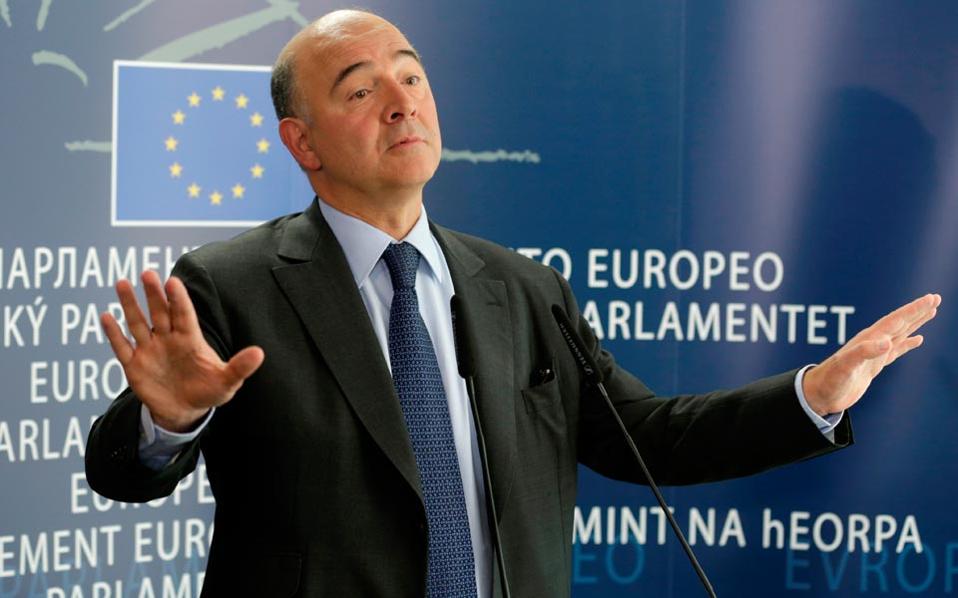Moscovici pushes Merkel with pledge Greece can earn debt relief

European Commissioner Pierre Moscovici said Greece’s European creditors have agreed to provide debt relief so long as the country’s government can deliver on the terms of the its third bailout package.
The remarks contradict the German position that an easing in the repayment terms on Greece’s debt is up for discussion further down the track. Chancellor Angel Merkel said at the weekend that debt relief is merely an “option” to be considered in the future.
“The euro group has already has discussed this,” Moscovici said Tuesday on RMC radio. “We have agreed to lighten the interest burden, lengthen the the maturity of the debt. It’s something that can be done when the time comes, after the negotiation of a good program of development and assistance.”
The International Monetary Fund has repeatedly called on euro area governments to reduce Greece’s debt burden in order to boost the country’s chances of reviving its economy. Without debt relief, economists doubt the latest bailout agreement will succeed and expect Greece’s euro exit to be back on the agenda next year.
There’s still a danger that Greece will be forced out of the euro region by the end of 2016, according to 71 percent of respondents in a Bloomberg survey of 34 economists. Seventy percent said they reckon Greece should be safe for the rest of 2015, though almost half said they thought the 86 billion-euro ($93 billion) bailout package Prime Minister Alexis Tsipras is targeting will prove to be too small.
German resistance
Merkel told German broadcaster ARD on Sunday that she’s prepared to discuss debt relief once Greece completes the first round of a new bailout.
“When the first successful assessment of the program being negotiated now is completed, exactly this question will be discussed,” Merkel said Sunday. “Not now, but then.”
Like Merkel, Moscovici ruled out a straight writedown of Greece’s debt.
“There is resistance across Europe to doing a haircut. In Germany but also in France,” he said. “It’s not a restructuring. It’s a re-profiling.”
Debate about debt relief is coming into focus after a week that saw Greece pull back from the brink of financial collapse. While the bailout agreed upon has split the government of Prime Minister Alexis Tsipras, it also cleared the European Central Bank to inject more funds into the country’s financial system.
That allowed banks to reopen on Monday, although capital controls and limits on withdrawals remain in place. The daily cash withdrawal limit of 60 euros will be replaced by a weekly limit of 420 euros, while transfers abroad from Greek accounts remain banned. The Athens Stock Exchange will also stay closed, a spokeswoman said Sunday in a text message.
Further easing of repayment terms for Greek aid loans has been an option in euro-area negotiations since 2012. Ensuring that Greece’s debt is sustainable looms as one of the challenges when talks on the third bailout get under way.
“Apart from Germany, it appears that most people are in agreement that Greece needs a substantial debt writedown,” said Alan McQuaid, chief economist at Merrion Capital Group Ltd. in Dublin. “Unless they get it, it is hard to see the country surviving within the eurozone indefinitely.” [Bloomberg]





